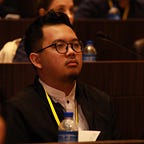Notes from the Sidelines №30: Adorno’s Theory of Authoritarian Propaganda
First, a recapitulation. Ever since the 2022 Presidential elections, I have been developing a theory of how and why the Filipino electorate turned towards authoritarian values.
My theory- based primarily on Inglehart’s theory of inter-generational value change- is that we are witnessing an inter-generational reemergence of authoritarian values. These values have always been embedded in Philippine culture and society and have persisted through the years due to underlying economic insecurity.
These “resentments” have always had a constituency- hence the persistence of support for candidates like Ping Lacson, Alfred Lim, and Tito Sotto. But they emerged in 2016 as a political force with the election of Rodrigo Duterte.
My theory is summarized below:
Rodrigo Duterte was the initial beneficiary in 2016. The Marcoses paved their way back to Malacañang by piggy-backing on the Duterte wave. In 2022, former Senator Bongbong Marcos ran for the Presidency with Inday Duterte as his running mate. The Unity theme which the pair adopted was a tacit appeal to authoritarian values.
With their captive majority, the Marcos-Duterte alliance will try to consolidate their power and discredit all possible alternatives- starting with the opposition, which is politically isolated and unable to recruit new talent to their ranks.
How and why did the “Unity” theme appeal to the authoritarian values of Filipino voters? This is explored in this article using Theodor Adorno’s theory of fascist propaganda.
Building upon Freud, Adorno writes that the appeal of fascism is libidinal- there is some form of “pleasure” in disappearing into the mass. Walden Bellow actually wrote a semi-satirical take on the DDS phenomenon along these lines in 2017:
This is closely related to what Freud wrote in “Civilization and its Discontents” on the “oceanic feeling” supposedly at the heart of religion. Freud explains this as a form of infantile regression- a desire to return to a state where there is no distinction or conflict with others.
Applied to authoritarianism, fascism seeks to break the bonds between individuals. They are instead directed towards a paternal authority figure. This may be concrete (Duterte as “Tatay” Digong) or abstract (The State as Fatherland).
This relationship towards the authority figure usually takes the form of obedience. He is seen as a “threatening authority” to whom one must pledge not only allegiance but also obedience (“Sumunod ka na lang”).
This is usually done through a process of identification. Aspects of the leader’s identity are absorbed into that of the individual and the group. They become “united” by melding their identities with that of the leader.
This closely related to the concept of “idealization”. The leader becomes a being of perfection in contrast to the imperfections of his followers.
Adorno also writes that fascist propaganda is hyper focused on the concept of “personalization”. By this, he means that leaders are transformed into an “everyman”. He is portrayed as fundamentally being “one of us”.
Finally, fascist propaganda always directs vitriol towards outward groups. After all, anyone who can present a different form of unity is a threat. At the same time, united hatred towards an individual or group further reinforces unity within the “in group”.
This also has the added benefit of downplaying differences within the group. “Sure, we have ‘some’ differences, but we are still more united than ‘those people’”.
There is anecdotal evidence to suggest that these tactics were all used in the Duterte and Marcos campaigns. For example, identification and personalization were evident in the former’s campaign.
“Atin to pre” (he’s one of us) was a consistent theme in Duterte’s 2016 campaign. His supporters also noted feeling an emotional attachment towards him as contrasted with others: “I cried when I saw him. I don’t know why”/ “I sacrificed for our President”.
Then there’s this article, where a Duterte supporter states pride in self-identifying as a “Dutertard”:
“How did I feel as a Dutertard?… Initially, I was hurt when the term was coined but ah…as time went by, I felt very proud being a Dutertard.”
Idealization and personification were present as well throughout Duterte’s term. “Tatay” Digong was idealized as someone who was “tired” but who as made “the ultimate sacrifice” for the nation. His followers were always proud to identify as “Diehard Duterte Supporters”.
In the case of Marcos Jr., the “Unity” theme- as Manolo Quezon writes- was a “flight into feel-good escapism”. Again, this ties to Freud’s analysis of religion and mass psychology-the desire to be free from all (political) conflict and to surrender all to the Leader.
It’s also why they continue to pillory Leni even though she has transitioned to a non-governmental role. In turning Leni into a boogeyman, they not only unite in their hatred, but also discredit any alternative form of unity which she may present.
There is also an emphasis on “direct” appeals to his supporters. But in contrast to Duterte, who was adept at using the media as a bully pulpit, President Marcos Jr. uses social media (specifically his feel-good vlogs) as a “direct line” to his supporters.
Similar propaganda portraying Marcos Jr. as “the leader” of “the masses” was also prevalent on the Tiktok platform during the campaign. Note how he is juxtaposed with the sea of supporters in red:
